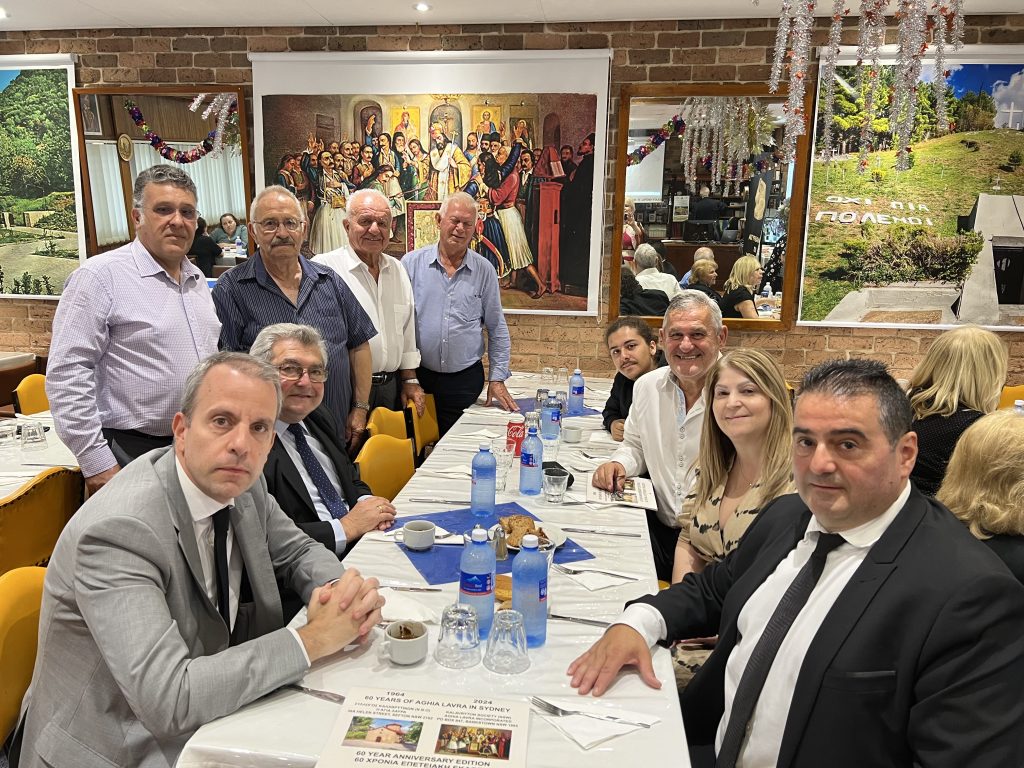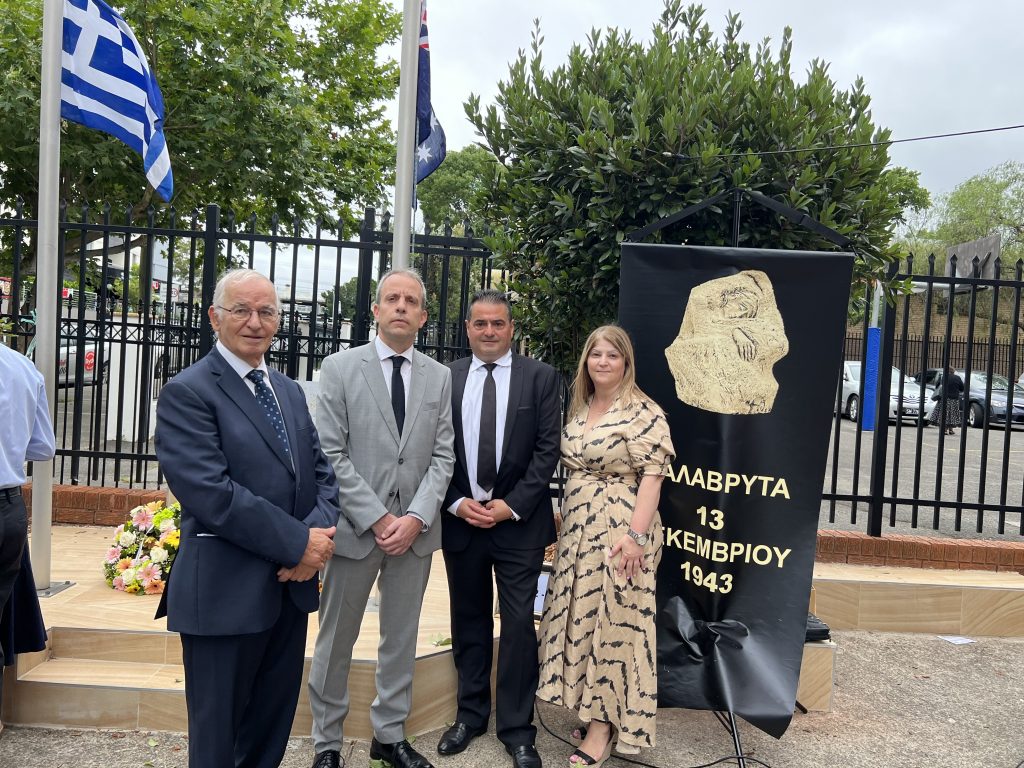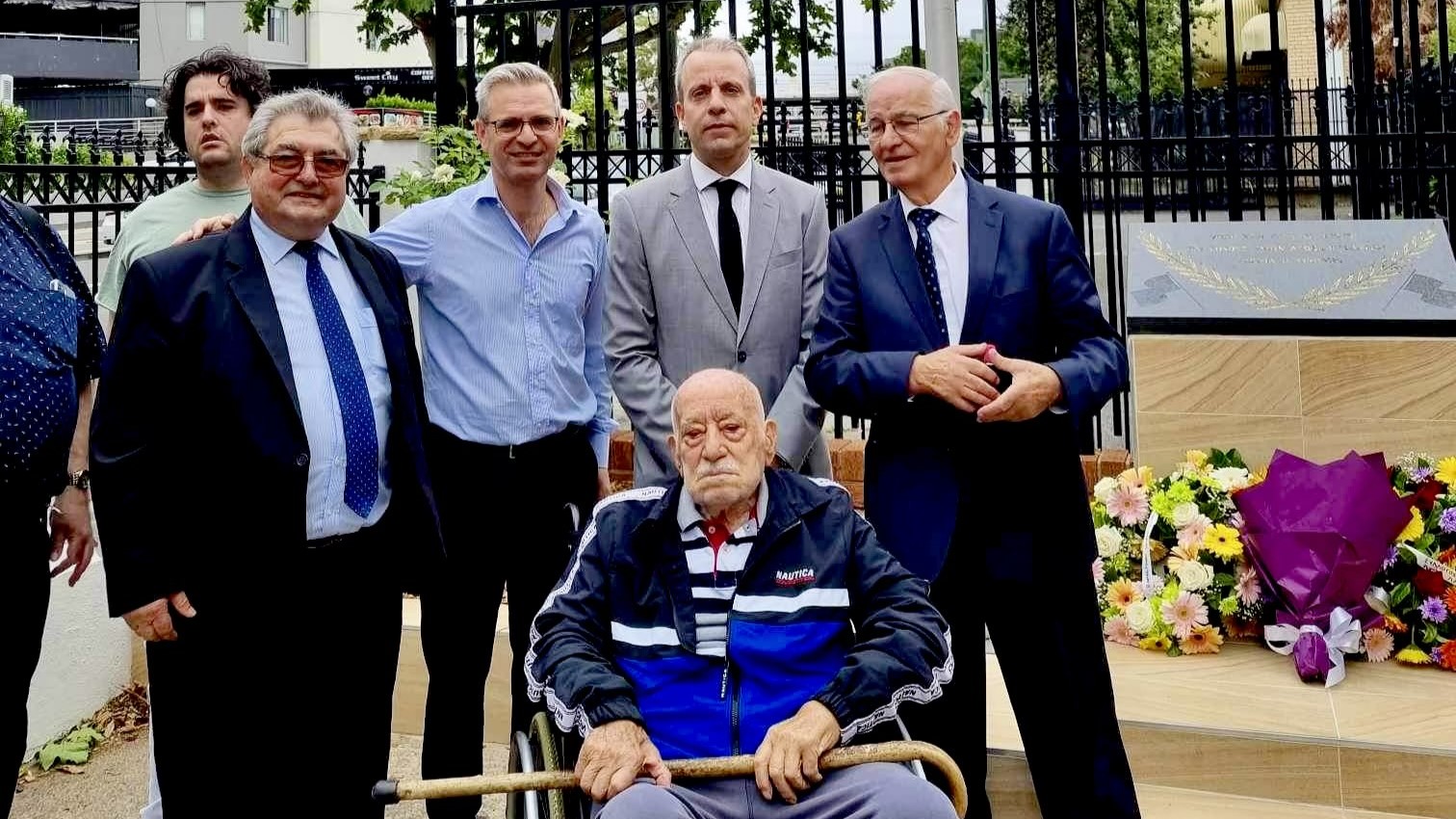On Sunday, December 10, the Kalavryton Association Aghia Lavra gathered at St Euphemia Greek Orthodox Church in Bankstown, Sydney to commemorate the 80th anniversary of the Kalavryta Holocaust.
Amongst those that paid their respects were the Consul General of Greece in Sydney, Ioannis Mallikourtis, and a survivor of the unfathomable horrors, 99-year-old Angelo Bouris from the nearby village of Kerpini. His eyes, windows to a tragic past, bore witness to the cataclysmic events that unfolded on the Monday of December 13, 1943.

December 13, 1943 marked the day when the serene town of Kalavryta was plunged into despair, forever etching its name in the annals of tragedy. The Nazis, with cold precision, executed 693 innocent civilians and children over the age of 12. The town, once a haven, was mercilessly reduced to ashes.
The Massacre of Kalavryta, known as the Holocaust of Kalavryta, was orchestrated by the merciless hands of the German Army’s 117th Jäger Division. This terrible act was a chilling response and horrific retaliation for the execution of 68 German soldiers captured by the defiant Greek Resistance.
“Operation Kalavryta,” or “Unternehmen Kalavryta,” was a typical German act of retaliation in areas where there was heavy guerrilla activity. It was directed against the civilian population of the region and was one of the most barbarous carried out by the Wehrmacht — not only in Greece but in all of Europe.
Women and children were herded into the confines of the school, only to face an inferno ignited by the cruel hands of war. Inside those engulfing flames, they bore witness to the gruesome demise of their husbands, sons, fathers, and brothers. Meanwhile, from a distant hill, the men witnessed the burning inferno that held captive their mothers, wives, sisters, and daughters.

The charred remnants of the school stood as a grim testimony to the brutality unleashed that day. Miraculously, some women managed to escape from the building. It is said that their survival was the unexpected kindness of an Austrian soldier who, amid the chaos, extended a lifeline of mercy.
Today, the echoes of Kalavryta resonate through time. The Greek community of Sydney honoured the memory of those lost and the resilience of those who survived, vowing to ensure that the pages of history bear witness to the tragedy that unfolded in the heart of Kalavryta.
